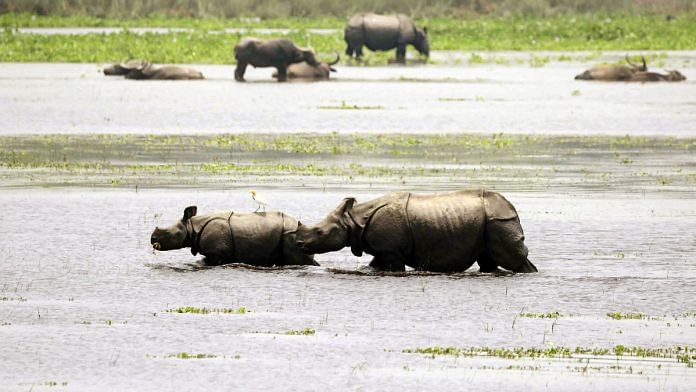New Delhi: A new report by the World Wildlife Fund (WWF) has found that the populations of wild birds, mammals, amphibians, reptiles and fish have fallen by 69 per cent since the 1970s, accelerating what it calls the “global double emergency” of biodiversity loss and climate change.
Released Thursday, the Living Planet Report found that the steepest loss in biodiversity occurred in the Latin America and the Caribbean region, where populations dropped by 94 per cent between 1970 and 2018.
The findings reinforce the claim that conserving biodiversity is essential to fight the effects of climate change. “The pressure we are placing on the natural world is driving an escalating nature crisis which, in turn, is undermining its ability to provide crucial services, including climate change mitigation and adaptation,” it says.
The report used a dataset of 32,000 populations from 5,230 species, gathered by 90 experts from 27 different countries. The dataset, called the Living Planet Index (LPI), was created by the WWF with the Zoological Society of London (ZSL).
Apart from climate change, threats to biodiversity include agriculture, hunting, logging, pollution, and invasive species.
“The Living Planet Index highlights how we have cut away the very foundation of life, and the situation continues to worsen. Half of the global economy and billions of people are directly reliant on nature. Preventing further biodiversity loss and restoring vital ecosystems has to be at the top of global agendas to tackle the mounting climate, environmental and public health crises,” said Andrew Terry, Director of Conservation and Policy, ZSL in a statement.
Also Read: Climate change could jeopardise energy security if renewables not doubled by 2030, says UN body
Populations in decline
The Living Planet Report is released every two years. In 2020, it found that there was a 68 per cent decrease in wildlife populations from 20,811 populations of 4,392 species.
This year’s index added 838 new species from 11,011 new populations, and still found a drop in biodiversity across the world.
The North American region has lost 20 per cent of its biodiversity, the Europe and Central Asian region 18 per cent, Asia and the Pacific 55 per cent, and Africa 66 per cent, according to the index.
In July, the Intergovernmental Science-Policy Platform on Biodiversity and Ecosystem Services released a series of reports that said unsustainable logging, fishing and hunting were driving a million species to extinction.
The report’s findings capture similar trends. Combining information about endangered species from the International Union for Conservation of Nature (IUCN) with their spatial distribution, it found that “agriculture is the most prevalent threat to amphibians, whereas hunting and trapping are most likely to threaten birds and mammals”.
Southeast Asia is where species are most likely to face threats, while Polar regions, the east coast of Australia, and South Africa showed the highest impact probabilities for climate change, “driven in particular by impacts on birds”, it adds.
(Edited by Theres Sudeep)
Also Read: 1% of global population caused 23% of growth in carbon emissions from 1990-2019, study says



